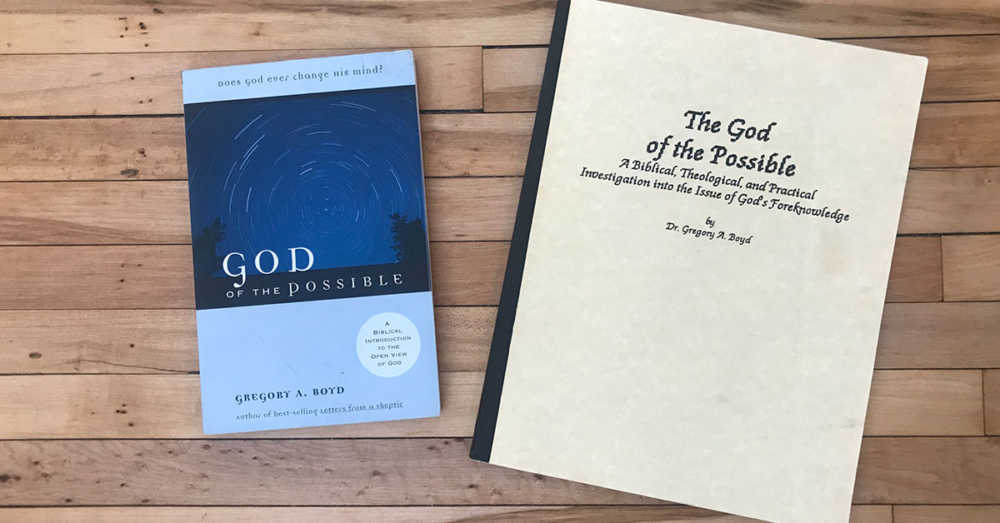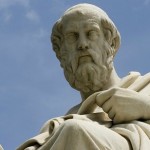We run our website the way we wished the whole internet worked: we provide high quality original content with no ads. We are funded solely by your direct support. Please consider supporting this project.
Podcast: The Making of God of the Possible
Greg talks about making his book “God of the Possible,” then offers his initial thoughts on Thomas Oord’s book “God Can’t.”

Send Questions To:
Dan: @thatdankent
Email: askgregboyd@gmail.com
Twitter: @reKnewOrg
Greg’s new book: Inspired Imperfection
Dan’s new book: Confident Humility
Subscribe:
Category: ReKnew Podcast
Tags: God of the Possible, Open Future, Open Theism
Related Reading

Is Your Christianity Shaped by Plato or the Bible?
The Timaeus is a work that Plato wrote that addresses the questions: “What is that which always is and has no becoming, and what is that which becomes but never is?” (Tim. 28a)? These questions contain one of the most influential – and, in my opinion, one of the most disastrous – philosophical ideas of…

Is exhaustively settled foreknowledge essential to God’s identity
In this episode Greg discusses several passages in Isaiah that imply God’s foreknowledge is a primary differentiator between Isaiah’s God and all other gods. Links: Greg’s book: “God of the Possible“ http://traffic.libsyn.com/askgregboyd/Episode_0023.mp3

A Calvinist and an Arminian walk into a bar…
Toby Bradbury via Compfight Roger Olson posted A Conversation between a Calvinist and an Arminian about God’s Sovereignty that we thought was dead on. In fact, we kind of wonder if Roger is bugging some of the conversations we’ve had. Déjà vu much? And since Roger has argued that Open Theism should be included under the broader umbrella of…

What is the significance of 2 Chronicles 12:5–8?
The Lord allows King Shishak of Egypt to almost conquer all of Israel because of King Reheboam’s rebellion. “You abandoned me, so I have abandoned you to the hand of Shishak” (vs. 5). The officers and king repent, so the Lord responds by saying, “They have humbled themselves; I will not destroy them, but I…

Isn’t the World Unsafe If God Doesn’t Control Everything?
If God isn’t in control of everything, the world feels unsafe. If the future is open and if things can happen outside of God’s will, what guarantee is there that there is a point to a person’s suffering? Maybe it’s all just bad luck. My experience has been that many of those who honestly examine…

What is the significance of Numbers 16:41–48?
The day following the Korah incident (see vs. 20–35), the Israelites rebelled against Moses again, this time because they blamed him for the death of those who were judged the day before (vs. 41). The Lord was very angry because of this and said to Moses and Aaron, “Get away from this congregation, so that…



